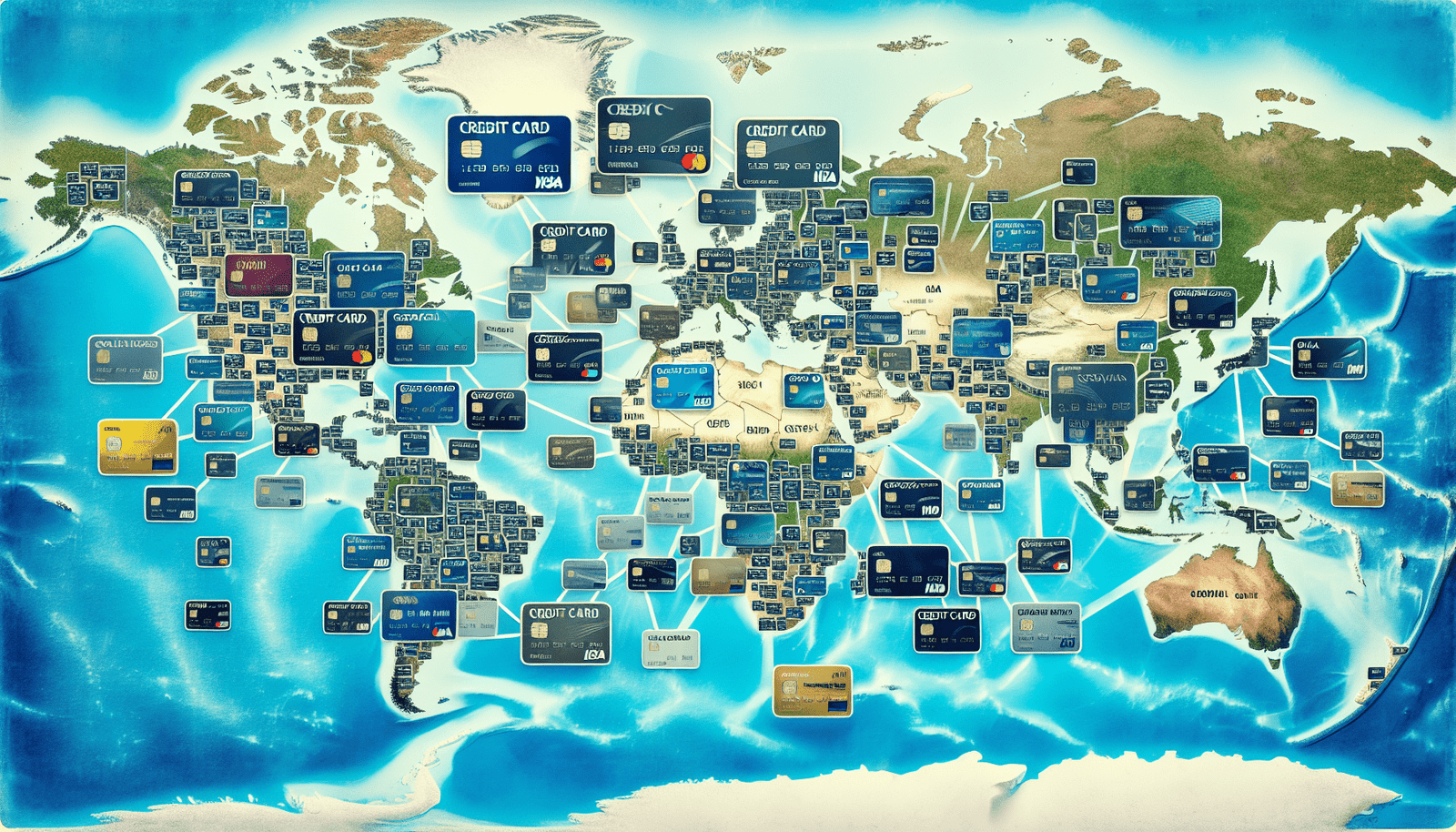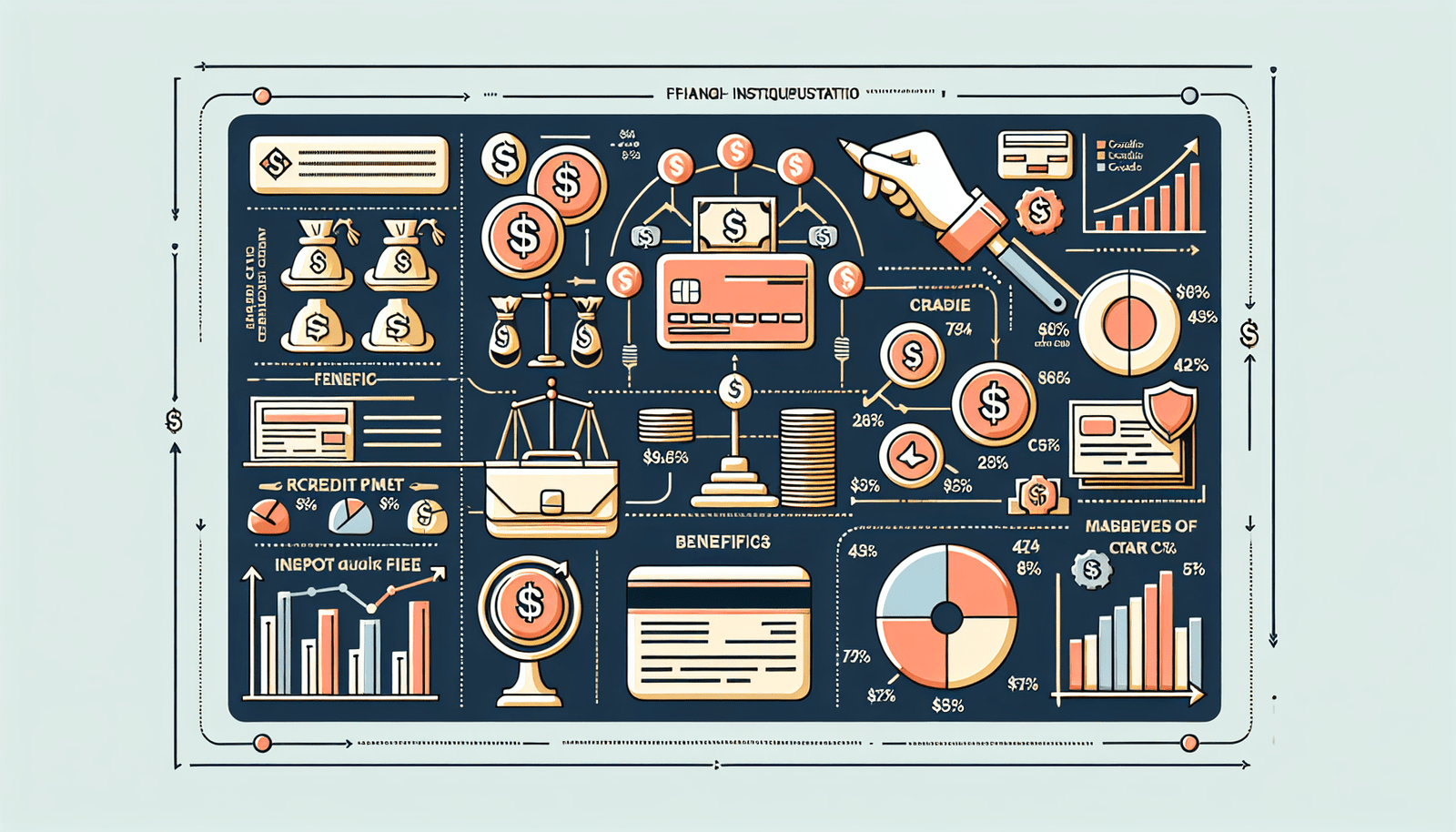credit cards in Malaysia come with various fees and charges that are important to understand before indulging in the world of cashless spending. From annual fees to late payment charges, these fees can quickly add up and affect your financial well-being. In this article, we will break down the different fees and charges associated with credit cards in Malaysia, providing you with a clear understanding of what to expect and how to manage them effectively.
Account Creation and Annual Fees
Account Opening Fee
When you first open a credit card account in Malaysia, you may be required to pay an account opening fee. This fee covers the administrative costs associated with setting up your account and activating your credit card. It is a one-time fee that is typically charged when you first apply for a credit card. The amount of the account opening fee can vary depending on the credit card issuer and the specific card you are applying for.
Annual Fee
Once your credit card account is open, you will be responsible for paying an annual fee. This fee is charged once a year and helps cover the ongoing maintenance and servicing of your credit card account. The amount of the annual fee can vary depending on the type of credit card you have and the benefits and features that come with it. Some credit cards may waive the annual fee for the first year, but charge it in subsequent years. It’s important to review the terms and conditions of your credit card agreement to understand the specific annual fee applicable to your card.
Supplementary Card Fee
If you would like to extend the benefits of your credit card to family members or friends, you may choose to apply for a supplementary card. A supplementary card fee is typically charged for each additional card you request. This fee covers the administrative costs associated with issuing and managing these supplementary cards. It’s worth noting that the annual fee and other charges associated with a supplementary card may be different from those of the primary cardholder.
Late Payment Fee
While it’s always important to make timely credit card payments, there may be instances where you are unable to do so. If you fail to make the minimum payment on your credit card by the due date, a late payment fee may be imposed. This fee is intended to encourage responsible credit card usage and ensure that payments are made in a timely manner. The late payment fee can vary depending on the credit card issuer and the outstanding balance on your card. To avoid late payment fees, it is advisable to set up automatic payment reminders or utilize online banking services to help you stay on top of your credit card payments.
Interest Charges
Retail Purchase Interest Rate
When you use your credit card to make retail purchases, the outstanding balance on those purchases may accrue interest charges. The retail purchase interest rate is the interest rate applied to the unpaid balances from your retail purchases. This rate is typically expressed as an annual percentage rate (APR) and can vary depending on the credit card issuer and the type of card you have. It’s important to pay attention to this interest rate as it can significantly impact the cost of carrying a balance on your credit card.
Cash Advance Interest Rate
In addition to making retail purchases, you may also have the option to obtain cash advances using your credit card. However, cash advances typically come with higher interest rates compared to retail purchases. The cash advance interest rate is the rate that applies to the outstanding balances from cash advances. This rate is typically higher than the retail purchase interest rate and may be subject to additional fees. It’s important to note that cash advances should be used sparingly and paid off as soon as possible to avoid incurring excessive interest charges.
Balance Transfer Interest Rate
If you have an outstanding balance on another credit card that carries a high-interest rate, you may consider transferring that balance to a lower interest rate credit card. This is known as a balance transfer. The balance transfer interest rate is the rate applied to the transferred balance on your credit card. This rate is generally lower than the cash advance interest rate and may come with promotional offers such as a lower interest rate for a specific introductory period. However, it is important to review the terms and conditions of the balance transfer offer to understand any potential fees associated with the transfer.

Transaction Fees
Cash Advance Fee
When you obtain a cash advance using your credit card, a cash advance fee may be charged. This fee is typically a percentage of the cash advance amount and is in addition to the cash advance interest rate. The cash advance fee is charged to cover the costs associated with processing the cash advance transaction and can vary depending on the credit card issuer and the specific card you have. It’s important to carefully consider the cost of cash advances and whether they are necessary, as this fee can add up quickly if you frequently use this feature.
Balance Transfer Fee
If you decide to transfer a balance from another credit card to your current credit card, a balance transfer fee may be imposed. This fee is typically a percentage of the transferred balance and is in addition to any interest charges that may apply. The balance transfer fee is charged to cover the administrative costs associated with transferring the balance and may vary depending on the credit card issuer and the terms of the balance transfer promotion. It’s important to calculate whether the savings from the lower interest rate outweigh the cost of the balance transfer fee before making a decision.
Foreign Transaction Fee
When you make purchases or withdraw cash in a foreign currency using your credit card, a foreign transaction fee may be applied. This fee is typically a percentage of the transaction amount and is in addition to any currency conversion fees that may apply. The foreign transaction fee is charged to cover the costs incurred by the credit card issuer for processing transactions in foreign currencies. It’s important to be aware of this fee if you frequently travel or make purchases from international merchants, as it can impact the overall cost of your transactions.
Returned Cheque Fee
If you make a credit card payment using a cheque, and that cheque is returned unpaid, a returned cheque fee may be charged. This fee is imposed to cover the administrative costs and potential bank charges associated with processing and returning the unpaid cheque. The returned cheque fee can vary depending on the credit card issuer and the specific card you have. To avoid this fee, it is advisable to ensure sufficient funds are available in your bank account before making payment by cheque or to explore other payment options such as online banking or direct debit.
Penalty Fees
Overlimit Fee
If you exceed your credit card’s predetermined credit limit, an overlimit fee may be imposed. This fee is intended to discourage excessive borrowing and to cover the administrative costs associated with managing and monitoring overlimit accounts. The overlimit fee can vary depending on the credit card issuer and the specific card you have. It’s important to monitor your credit card’s available credit and spending to avoid exceeding your limit and incurring this fee. If you find yourself consistently going over your limit, it may be worth discussing with your credit card issuer about increasing your credit limit.
Card Replacement Fee
In the event that your credit card is lost, stolen, or damaged, you may need to request a replacement card. A card replacement fee may be charged to cover the costs associated with reissuing and delivering a new credit card to you. This fee can vary depending on the credit card issuer and the type of card you have. It’s important to notify your credit card issuer immediately if your card is lost, stolen, or damaged to minimize any unauthorized transactions and to request a replacement card promptly if needed.
PIN Replacement Fee
If you forget your credit card’s Personal Identification Number (PIN) or need to change it for security reasons, a PIN replacement fee may be charged. This fee is imposed to cover the administrative costs associated with generating and providing a new PIN for your credit card. It’s important to keep your PIN secure and avoid sharing it with others to prevent unauthorized access to your credit card account. If you find yourself in a situation where you need a PIN replacement, be mindful of the associated fee and take steps to memorize your new PIN to avoid any further inconvenience.

Miscellaneous Charges
Statement Copy Fee
If you require additional copies of your credit card statements, a statement copy fee may be charged. This fee covers the costs associated with printing and delivering duplicate copies of your credit card statements. The statement copy fee can vary depending on the credit card issuer and the specific card you have. To avoid this fee, it’s recommended to keep digital copies or PDF versions of your credit card statements for future reference.
Card Delivery Fee
When you first receive your credit card, it is typically delivered to your preferred mailing address. Some credit card issuers may charge a card delivery fee to cover the costs associated with securely delivering your credit card to you. This fee can vary depending on the credit card issuer and the specific card you have. It’s important to be aware of this fee and factor it into your decision-making process when choosing a credit card.
Payment Convenience Fee
While most credit card issuers provide various payment options, such as online banking or automated payments, some payment methods may incur a payment convenience fee. This fee is charged to cover the costs associated with processing payments made through specific channels or methods. The payment convenience fee can vary depending on the credit card issuer and the specific payment method you choose. It’s important to explore different payment options and choose the one that best suits your convenience and minimizes any associated fees.
Credit Shield and Insurance
Credit Shield Premium
Certain credit cards offer credit shield protection, which provides coverage in the event of unexpected life events that may impact your ability to make credit card payments. The credit shield premium is the fee charged for this protection and is typically calculated based on a percentage of your credit card’s outstanding balance. This fee allows you to safeguard your finances and ensure that your credit card payments are made in the event of unforeseen circumstances such as job loss, disability, or critical illness. It’s important to review the terms and conditions of the credit shield program to understand the extent of the coverage, as well as any exclusions or limitations that may apply.
Credit Card Insurance Fee
In addition to credit shield protection, some credit cards may offer additional insurance coverage, such as travel insurance or purchase protection. The credit card insurance fee is the cost associated with these extra insurance benefits. This fee may be charged annually or per transaction, depending on the specific insurance coverage offered with your credit card. It’s important to review the terms and conditions of the insurance policy to understand the coverage provided and any conditions or exclusions that may apply. Assessing your individual needs and the value of the insurance benefits will help you determine if the insurance fee is worthwhile for your situation.

Reward Program Fees
Rewards Redemption Fee
Many credit cards in Malaysia offer rewards programs that allow you to earn points or cashback on your purchases. When you decide to redeem your accumulated rewards, a rewards redemption fee may be charged. This fee covers the administrative costs associated with processing and fulfilling your reward redemption request. The rewards redemption fee can vary depending on the credit card issuer and the specific redemption option you choose. It’s important to evaluate the value of the rewards you are redeeming against the cost of the redemption fee to ensure that it is a worthwhile transaction for you.
Conversion Fee
If you hold a credit card that allows you to earn rewards in foreign currencies, a conversion fee may be applied when converting those rewards into local currency. This fee is intended to cover the costs incurred by the credit card issuer for converting foreign currency rewards into the local currency. The conversion fee is typically a percentage of the amount being converted and can vary depending on the credit card issuer and the specific conversion rate being applied. It’s important to take this fee into consideration when deciding whether to convert and redeem your foreign currency rewards.
Credit Card Installment Plan
Processing Fee
If you choose to convert a large purchase into an installment plan, a processing fee may be applied. This fee covers the administrative costs associated with processing and setting up the installment plan for you. The processing fee is typically a percentage of the purchase amount being placed on the installment plan and can vary depending on the credit card issuer and the terms of the plan. It’s important to assess the cost of the processing fee against the convenience and affordability of spreading your purchase into smaller monthly payments.
Early Settlement Fee
If you decide to pay off your credit card installment plan before the agreed-upon tenure, an early settlement fee may be charged. This fee is imposed to compensate for the loss of interest income that the credit card issuer would have earned if you had continued to make monthly installment payments until maturity. The early settlement fee can vary depending on the credit card issuer and the terms of the installment plan. It’s important to review the terms and conditions of the plan and consider whether the early settlement fee outweighs the potential interest savings before deciding to settle the plan ahead of schedule.

Balance Conversion Program
Enrollment Fee
If you choose to convert a high-value purchase or outstanding balance into a balance conversion program, an enrollment fee may be charged. The enrollment fee covers the administrative costs associated with processing and setting up the balance conversion program for you. This fee can vary depending on the credit card issuer and the specific program you choose. It’s important to evaluate the cost of the enrollment fee against the potential savings and convenience of spreading out your payments over a longer period.
Interest Rate
When you participate in a balance conversion program, an interest rate may be applied to the outstanding balance that is being converted. This interest rate is typically lower than the retail purchase interest rate but higher than the promotional interest rates offered for specific periods. The interest rate applied to a balance conversion program can vary depending on the credit card issuer and the terms of the program. It’s important to assess the interest rate offered and compare it to other financing options to ensure that the cost of the program is reasonable and aligns with your financial goals.
Credit Card Upgrades and Downgrades
Upgrade Fee
If you decide to upgrade your current credit card to a higher-tier card with enhanced benefits, an upgrade fee may be charged. This fee covers the administrative costs associated with upgrading your credit card and activating the new features and benefits. The upgrade fee can vary depending on the credit card issuer and the specific card you are upgrading to. It’s important to assess whether the additional benefits and features of the upgraded card justify the cost of the upgrade fee.
Downgrade Fee
On the other hand, if you decide to downgrade your current credit card to a lower-tier card with reduced benefits, a downgrade fee may be charged. This fee covers the administrative costs associated with downgrading your credit card and adjusting the features and benefits accordingly. The downgrade fee can vary depending on the credit card issuer and the specific card you are downgrading to. It’s important to evaluate whether the reduction in benefits and features outweighs the cost of the downgrade fee when considering this option.
While credit cards can offer many conveniences and benefits, it’s crucial to understand the various fees and charges associated with them. Being aware of these fees and charges allows you to make informed decisions about your credit card usage and effectively manage your finances. It’s recommended that you review and compare the fees and charges of different credit cards to find one that aligns with your financial goals and offers the best value for your needs.










